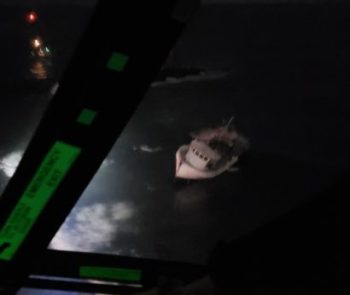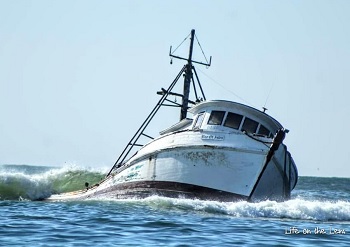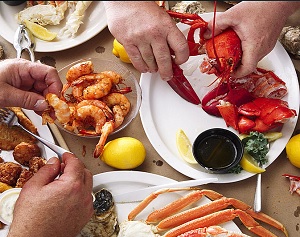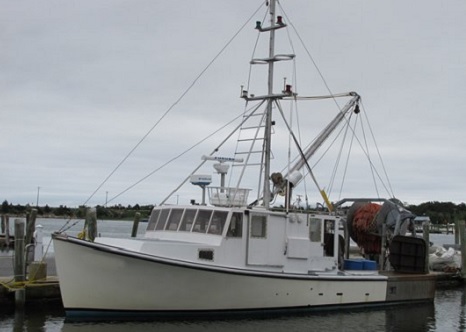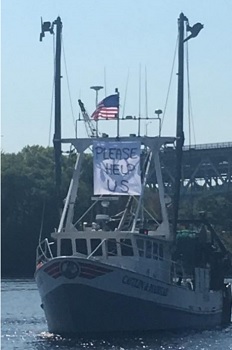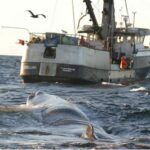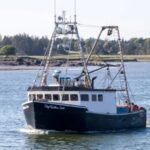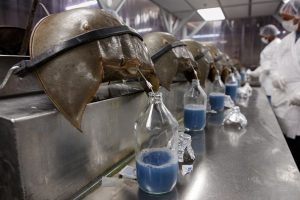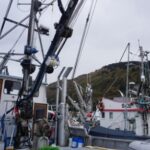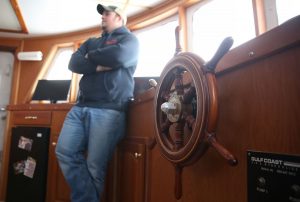Category Archives: Mid Atlantic
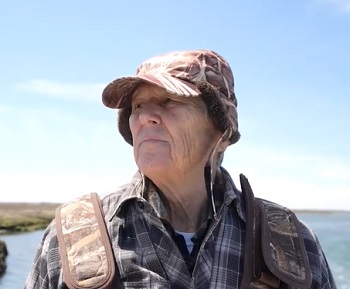
Long Island bayman still plying the waters, preserving traditions at 76
Ben Sohm stands on the second floor of his Amity Harbor home, surveying his surroundings through an expansive bay window. Below him, Ketcham Creek rolls its way to the Great South Bay, visible in the distance. His personal armada of a half dozen skiffs, duck-hunting and deep-sea fishing boats, is assembled along the dock abutting his house. Around him, arrayed on shelves that surround the living room, is his collection of vintage duck decoys, many carved a century ago by the baymen of Seaford, where Sohm grew up. But the most telling item in his collection is framed on the wall, near the carved ducks and family photos: A faded copy of Frank Roach’s New York State hunting license, issued in 1919. It was Roach, Sohm’s maternal grandfather, who inaugurated him into the life of a bayman, a tradition Sohm carries on, with aplomb, even at his own grandfatherly age of 76. Video, >click to read< 09:56
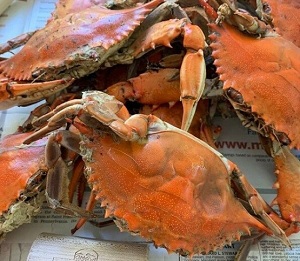
Md. crabbing industry fears long-term impacts of 2020 visa shortages – “Finding Americans that are willing to do this job, it’s not happening.”
Maryland’s famous crab industry is facing an uphill battle. With another year of visa caps, there’s a severe shortage of migrant workers to work as crab pickers ― and few Americans willing to do the job. This year, Maryland crabbers fear for the life of an industry that has been in their families for generations. Only nine crab processors ― which represent 95% of the state’s crab meat production ― remain in Maryland. The processors ― or picking houses ― rely on about 500 foreign seasonal workers to pick crabmeat each year. To work in the United States those workers need H-2B visas designated for temporary non-agricultural workers. >click to read< 18:54
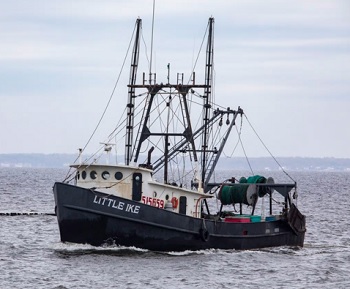
‘I cannot believe how much we’ve lost.’ N.J. fishermen face tough times with restaurants shut down.
Fish of all shapes, sizes and stripes glisten from stainless holding bins at Belford Seafood Co-Op, reached by a narrow bumpy road that seems to head to the marshy middle of nowhere.,, “The dorado (mahi-mahi) is wild caught from Spain,,, “The rest of it is local, from our boats. We have six different draggers…’’ So expect no punches to be pulled when you ask how the coronavirus has affected the seafood co-op, and the fishermen on its 10 boats. Most of the restaurants that depended on Belford’s fish have shut down, which has wreaked havoc on the co-op’s business. >click to read< 15:31
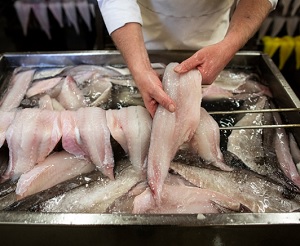
Coronavirus: Commercial fishing industry on the ropes as pandemic-era shoppers avoid seafood
Fisherman Marty Scanlon has not returned to his Long Island home since leaving for North Carolina at the beginning of the coronavirus pandemic in New York. Scanlon, a longliner captain from Hauppauge left for North Carolina in early March — roughly the same time the first case of Covid-19 emerged in Manhattan. In the weeks that followed, Gov. Andrew Cuomo ordered most businesses to close, effective March 22, casting a pall over New York City restaurants in a once-bustling culinary capital. Business for Scanlon has been brutal ever since. “We basically don’t have the money to go home,” Scanlon said, over the phone. “We can’t go home til we pay our bills.” >click to read< 08:32
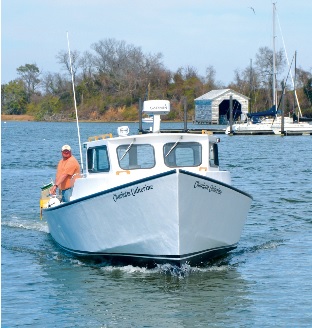
Father and son continue the Tilghman Island boatbuilding tradition
John C. Kinnamon Sr. and his son J.C., of Tilghman Island, Maryland are steadily turning out fiberglass-over-wood Chesapeake Bay deadrise workboats for Maryland and Virginia commercial fisherman. The Kinnamons are native Tilghman Islanders. Their lives as professional boatbuilders are strongly tied to their growing-up years, when commercial fishing and boatbuilding were vital to island life. They each own commercial fishing boats and work in Maryland’s blue crab trotline fishery. J.C., with the help of his father, builds about four new glass-over-wood deadrise workboats a year. With knowledge that comes from first-hand experience, the Kinnamons have clear insight into what a Chesapeake Bay waterman wants and needs in a workboat. >click to read< 10:20
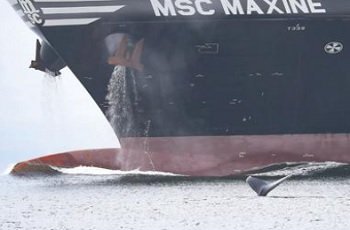
Humpback whales, large ships on deadly collision course at the mouth of Chesapeake Bay
Attracted by a relative abundance of fish, growing numbers of humpback whales spend the winter in the waters where the Chesapeake Bay empties into the Atlantic Ocean. No. 166675 was one of them. Researchers tracked the young male with a satellite tag for 10 days in January 2017 as he dodged huge vessels in one of the busiest shipping lanes on the East Coast. The next month, the whale’s body washed ashore on Virginia Beach. A necropsy confirmed the scientists’ fears: He had been struck by a large ship. After six years of monitoring humpbacks’ movements in the Hampton Roads region, the team conducting the Navy-funded study has published its first peer-reviewed paper. It shows that many more humpbacks are at risk from ship strikes and suggests that authorities may need to take more actions to protect them. >click to read< 13:45
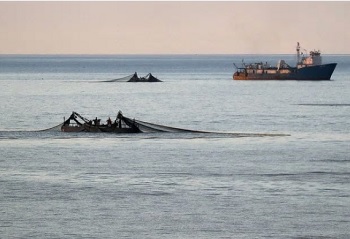
Chesapeake Bay’s menhaden catch cut drastically, along with Omega Protein quota
Virginia is cutting this year’s Chesapeake Bay menhaden catch by more than 80% from last year’s landings in order to end a federal moratorium.
Federal fisheries officials said they’d bar fishing for menhaden in the Bay this year — as long as the fish were headed for Omega Protein’s fish oil and fishmeal plant in Reedville — because the state had not enacted a 41.5% cut to 51,000 tons in Omega’s quota, which had been imposed by the Atlantic States Marine Fisheries Commission in 2017. But the Atlantic States commission has not found that menhaden were overfished. “To be perfectly clear, there is no conservation basis for the Chesapeake Bay cap. No scientific methodology was used in setting the Chesapeake Bay cap by the ASMFC, ,,, >click to read< 15:35
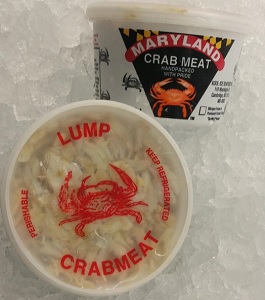
Seafood industry visa fix in question after Coronavirus outbreak
With the aid of lawmakers, seafood businesses in Maryland, Virginia, Alaska and North Carolina last month won federal approval of an additional 35,000 visas for non-immigrant workers, but the timing couldn’t have been worse. Within days, the coronavirus pandemic began shutting down businesses, including restaurants and retail outlets the seafood industry supplies. Some seafood operations let employees go, while others have hired fewer people than they would in a more typical season. Jack Brooks, president of J.M. Clayton Seafood Co. in Cambridge, Maryland, explained that the seafood industry is a seasonal business and the coronavirus has hit the hardest during the industry’s prime time. >click to read< 13:16
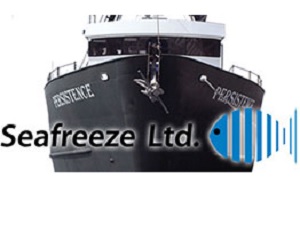
Always Top Quality! Your Seafreeze Ltd. Price Sheet for April 2020 Has Arrived!
Contact our sales team today! To review the complete price list from Seafreeze Ltd., >Click here< – “The only thing we treat our fish with, is respect” Seafreeze Ltd! >Click here< to visit our website! 10:35 
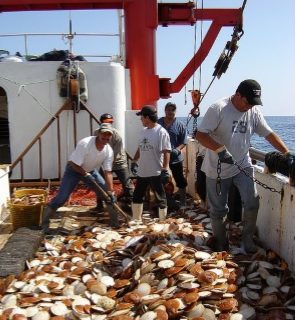
Scallops: NEFMC Approves Amendment 21 Range of Alternatives; Requests Emergency Action on Coronavirus
The New England Fishery Management Council covered several important scallop-related issues during its April 14-15, 2020 meeting, which was held by webinar. Current COVID-19 restrictions on travel and public gatherings prevented the Council from meeting in person. Here’s a recap of the scallop highlights. The Council agreed that the COVID-19 situation qualified as “unforeseen.” Over the course of its discussion, the Council did weigh the possibility of immediately initiating a framework adjustment to address the pandemic’s impacts on the scallop fishery, but the move did not garner enough support. >click to read< 14:18
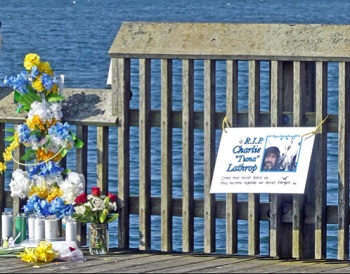
Family, friends remember fallen Stonington scallop fisherman Charles J. Lathrop
A memorial at the Stonington Town Dock built over the weekend paid tribute to Charles J. Lathrop, a Westerly man who died Thursday as a result of injuries suffered when he fell overboard last week while working on a commercial scallop boat. Surrounded with flowers, the memorial included a picture of the 50-year-old local fisherman who spent 35 years working on the water, docking in ports from Stonington to Hawaii. Next to the memorial, a sign read “Good men never leave us, they become legends we never forget.” photo’s >click to read< 09:53
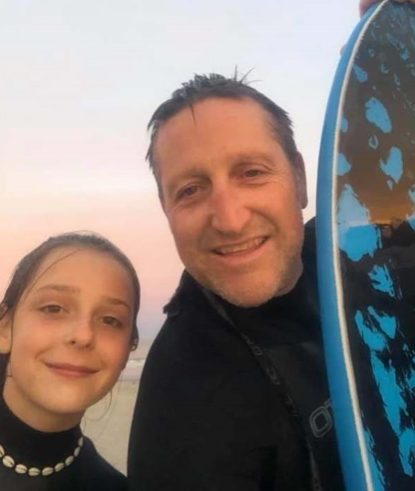
Stonington scallop boat crewman remembered for devotion to his daughter
When Charlie Lathrop was just 15, he quit school and began a 35-year career as a commercial fisherman, working out of ports from the Town Dock to Hawaii and Puerto Rico. Known for his devotion to his 13-year-old daughter, Catherine, his tattoos and his nickname “Charlie Tuna,” the 50-year-old Westerly resident died sometime Wednesday night when he fell overboard from the local scallop boat Invictus off the coast of New Jersey.,, Lt. Commander Dan Schrader, the public affairs officer for the Coast Guard’s Mid-Atlantic Region, said Saturday that on Wednesday at 10:43 p.m., the Coast Guard received a report from the boat that a person fell overboard about 60 miles southeast of Atlantic City, N.J. Southern New England Fishermen and Lobstermen’s Association President Mike Grimshaw referred comment Saturday to boat owner Joe Gilbert of Milford, who could not be reached. The 74-foot-long Invictus was not at the dock on Saturday,,, You may have to answer a survey to access at the article. >click to read< 07:49
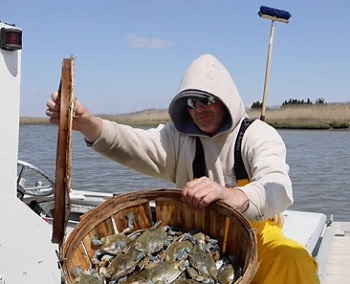
A life hooked on uncertainty – Delaware fishermen just hoping they can survive impacts of the coronavirus
Brian Hoffecker almost didn’t make it through the first year he ventured off on his own as a commercial fisherman. It was the mid-1990s and he owed a lot of money on the boat he had just bought when a historic winter storm hit his prey – Delmarva’s iconic blue crabs – hard. “When it was time to go crabbing, I was broke,” he said. “It was brutally cold and it killed most of the crabs. There weren’t any crabs to catch.” After more than two decades making a living on the water, the impacts of the coronavirus, Hoffecker’s livelihood is threatened once again.,, Like commercial lobsterman and black sea bass fisherman Wes Townsend says, the only thing certain in the world of fishing is the uncertainty.,, But he’s never seen anything like this before, he said. photos, video,>click to read< 09:21
Athearn Marine Agency Boat of the Week: 39′ BHM Dragger/Lobster, 435HP Volvo, Nextgen 3.5 KW
To see specifications, information and 26 photos, >click here< Vessel is in good condition. To see all the boats in this series, >click here< 12:46
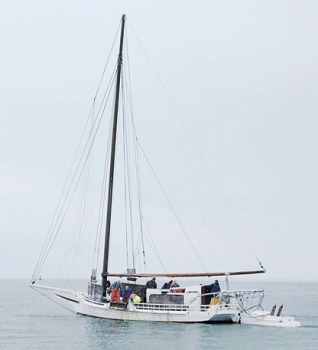
Last of the Chesapeake Skipjacks
Over the course of a Chesapeake Bay waterman’s life, big memories tend to swallow smaller ones. So when seventy-two-year-old Harold “Stoney” Whitelock looks back on his childhood now, it’s all misty images of water and boats, and little else. “That’s all my family talked about at Sunday dinner,” he says. “Boat this and boat that.” Whitelock is one of the bay’s last skipjack captains. Long, shallow wooden boats with tall, wide sails, skipjacks survive as the only commercial sailing vessels left in North America. The nine or so (by Whitelock’s estimate) still used to dredge for oysters all concentrate here on Maryland’s toothy Eastern Shore, kept afloat by a couple of dozen people who speak with a distinctive brogue that’s fading by the generation, too. >click to read< 09:27
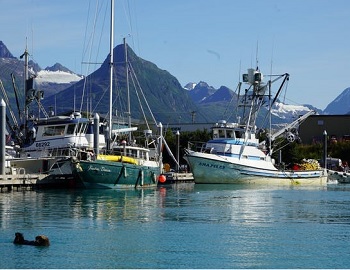
While coronavirus threatens seafood economy, community fisheries find ways to stay afloat
Major commercial fisheries, including the iconic Maine lobster fisheries, have ground to a halt.,, Consider the lucrative Pacific halibut fisheries, which opened in mid-March. These fisheries largely serve fine dining restaurants. Combined with the loss of sales to markets like China, seafood producers from east to west are without a market for their product. Combined with the loss of sales to markets like China, seafood producers from east to west are without a market for their product. But decades of globalization, industrialization and environmental change have brought many coastal communities to the brink, because of coastal development, climate change or they’ve lost fishing rights to industry consolidation. To meet this moment, many need more than just an invigorated customer base. >click to read< 12:16
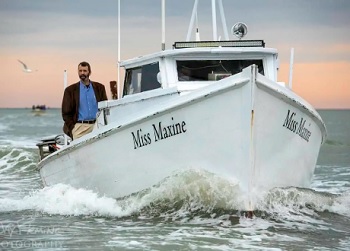
Smith Island Holds “Boat-in” Easter Service
On Easter Sunday, six boats from the three Smith Island, Maryland communities gathered around Pastor Everett Landon aboard the Miss Maxine, his father’s wooden workboat, in the sheltered waters off Easter Point. Pastor Landon addressed the floating congregation over channel 78 on VHF marine radio as the sun came up over Tangier Sound. Families who were not able to attend the ‘boat-in’ service tuned in through their at-home VHF radios. >Click through the gallery below to see images of the Easter boat-in< 10:20
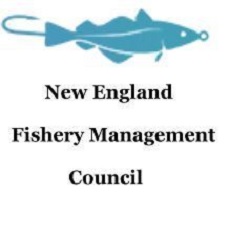
New England Fishery Management Council Webinar Meeting, April 14th-15th, 2020
Due to federal and state travel restrictions and updated guidance from the Centers for Disease Control and Prevention regarding the new coronavirus, COVID-19, the April Council meeting will be conducted by webinar. Please continue to monitor this webpage for additional information. >click here< The New England Fishery Management Council will hold a two-day meeting by webinar on Tuesday, April 14 and Wednesday, April 15, 2020. The public is invited to listen live and provide input during designated opportunities for public comment. IMPORTANT: This notice contains more information than usual. Please read carefully and especially take note for details, >click to read< 13:11
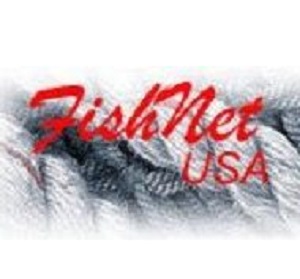
Looking Back with FishNetUSA: The case for Bureaucratic Monitoring Systems (BMSs)
A good friend of mine is a New Jersey gillnetter. An acknowledged highliner, he’s served and continues to serve on several state and regional advisory committees, has always participated in the management process, and has never received a NOVA or been convicted of violating any federal or state fisheries regulations. One requires that he have a Vessel Monitoring System (VMS) operating 24 hours a day, 7 days a week, 52 weeks a year.,, This got me thinking, and one of the things it got me thinking about was all of those bureaucrats paid from the U.S. Treasury.,, So why isn’t the wearing, or perhaps implantation if that is a practical alternative, of Bureaucrat Monitoring Systems (BMSs), required as a condition of public employment? >click to read< 13:19

Federal Judge Finds Lobster Fishery Threatens Endangered Whales, Orders NMFS To Comply
U.S. District Judge James Boasberg of the District of Columbia said in a 20-page order Thursday a 2014 finding by the National Marine Fisheries Service the American lobster fishery would not jeopardize the North Atlantic right whale population – of which there are 400 left in the world – violated the Endangered Species Act, granting summary judgment in favor of several conservation groups. The 2014 Biological Opinion by the National Marine Fisheries Service failed to include an “incidental take statement,” rendering the opinion illegal under the Endangered Species Act, Boasberg found. >click to read< 07:49
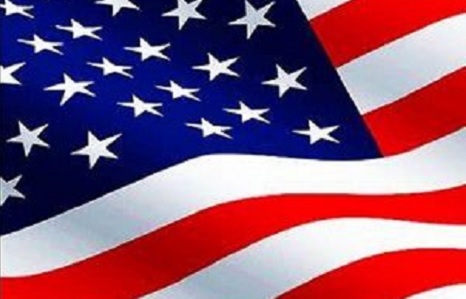
With Coronavirus pandemic ravaging our country, temporary relaxation of fishery regulations is urged to help fishing industry
Thanks to our Senators and Congressmen who worked to get specific aid to the fishing industry, that has been hit particularly hard by the closure of restaurants, where 70 per cent of seafood in this country is consumed. Fishermen and wholesalers have had to adapt on the fly and find other ways to market their product to various degrees of success. The closure of so many vital aspects of our domestic economy will have effects that will still be felt a long time after the Virus is tamed.,, I am requesting that NMFS immediately contact the various management councils and commissions to request that special meetings [webinars] of fishery advisory panels be held to discuss the pro’s and cons of this idea, and what fisheries could benefit.,,, By Jim Lovgren. >click to read< 20:48
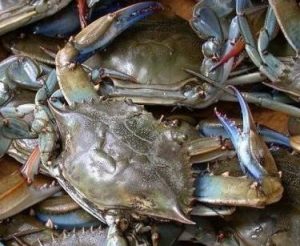
Coronavirus Assistance for Commercial Watermen and the Seafood Industry
The Hogan Administration acknowledges that the seafood industry is an iconic Maryland industry with commercial landing values over $82 million. The seafood industry also contributes over $600 million to Maryland’s economy. Given the economic hardships posed by the COVID-19 pandemic, commercial watermen who are self-employed may be eligible for the following relief programs: Small Business Administration (SBA) Paycheck Protection Program (PPP), Coronavirus Aid, Relief, and Economic Security (CARES) Act Relief Funding, more information, >click to read< 15:07

Coronavirus: Pop-up seafood market at Jersey Shore helps fishermen hurt by restaurant closures
A pop-up wholesale seafood market is helping to keep the fishing industry afloat in an Ocean County municipality. Point Pleasant Beach’s Shore Fresh Seafood Market is collaborating with the Fishermen’s Dock Cooperative to sell the catch — brought ashore on the docks directly behind the business — on its outdoor patio on Channel Drive.,, The next wholesale market is set for this Thursday through Sunday, 10 a.m. through 4 p.m. Offerings include sea bass, fluke, porgies, monk fish and sea scallops. more info, >click to read< 13:49
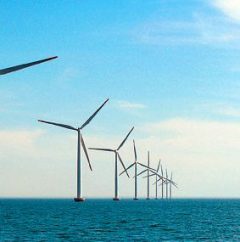
Fishing groups wary of rapid offshore wind development plans
As offshore wind moves up the coast of New England, efforts are underway to make sure the region’s fishing interests have a seat at the table early in project development. An alliance of industry and academic stakeholders is promoting the need for research and best practices as offshore wind takes hold in waters where fishing has long been an economic anchor. Fishing groups have several concerns about the potential for boating obstacles and ecological impacts. A dearth of research makes the industry hesitant as it prepares for a slew of projects that could overwhelm their operations. Above all, fishing stakeholders want to be included from the start of wind project development. >click to read< 09:07
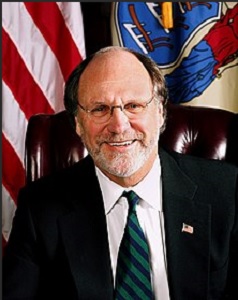
Looking Back: 2007-Wake up New Jersey before more of your tax dollars are wasted on Governor Corzine’s offshore windfarm
The Governor is proposing to create a huge 80 unit windfarm capable of producing 350 megawatts of electricity in the waters off the south Jersey shore at an estimated present cost of 1.5 billion dollars. Last week New York cancelled plans for a smaller farm, of about 40 windmills, off of Jones beach because of rising cost estimates already over 700 million dollars for a project originally projected to cost about 200 million. New York officials were smart enough to recognize a financial black hole before they started it. Are New Jersey officials? >click to read< 13:47
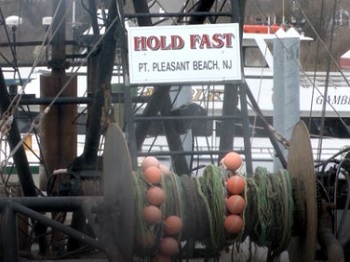
Coronavirus: Outdoor seafood market helps Point Beach fishermen sell catch
The commercial fishing industry, like many others, is reeling from social distancing orders. In the case of fishermen, two-thirds of their seafood is normally bought by restaurants, which have been reduced to takeout only. The co-operative’s fishermen are trying to find alternatives ways to sell their fish instead of bringing them to Fulton Fish Market in the Bronx, where wholesalers buy fish and move it to restaurants. “Prices have dropped by as much as 75 percent. I haven’t seen them this low since the 1980s,” said Jim Lovgren, who sits on the board of directors Fishermen’s Dock Cooperative, of Fulton’s prices. Video, photos, >click to read< 15:44

In the middle of a socio economic disaster, Town of Riverhead cracks down on bunker fishermen
Even as Long Island’s commercial fishing industry reels from coronavirus-shuttered markets and restaurants, one East End town this week began cracking down on one of the few remaining viable sectors for local baymen: fishing for menhaden. Menhaden fishermen who launch their boats from a town ramp in Riverhead were greeted by a bay constable Wednesday morning who said the men would be cited for using seine nets that stretch beyond the 50-foot limit allowed by the town. “I’ve been fishing there for the last 30 years, and they decide to pick now, in the middle of a socio economic disaster, to enforce a silly code that’s not even applicable?” said Will Caldwell, a Hampton Bays fishermen who received a summons with a 30-day court date. >click to read< 09:37






